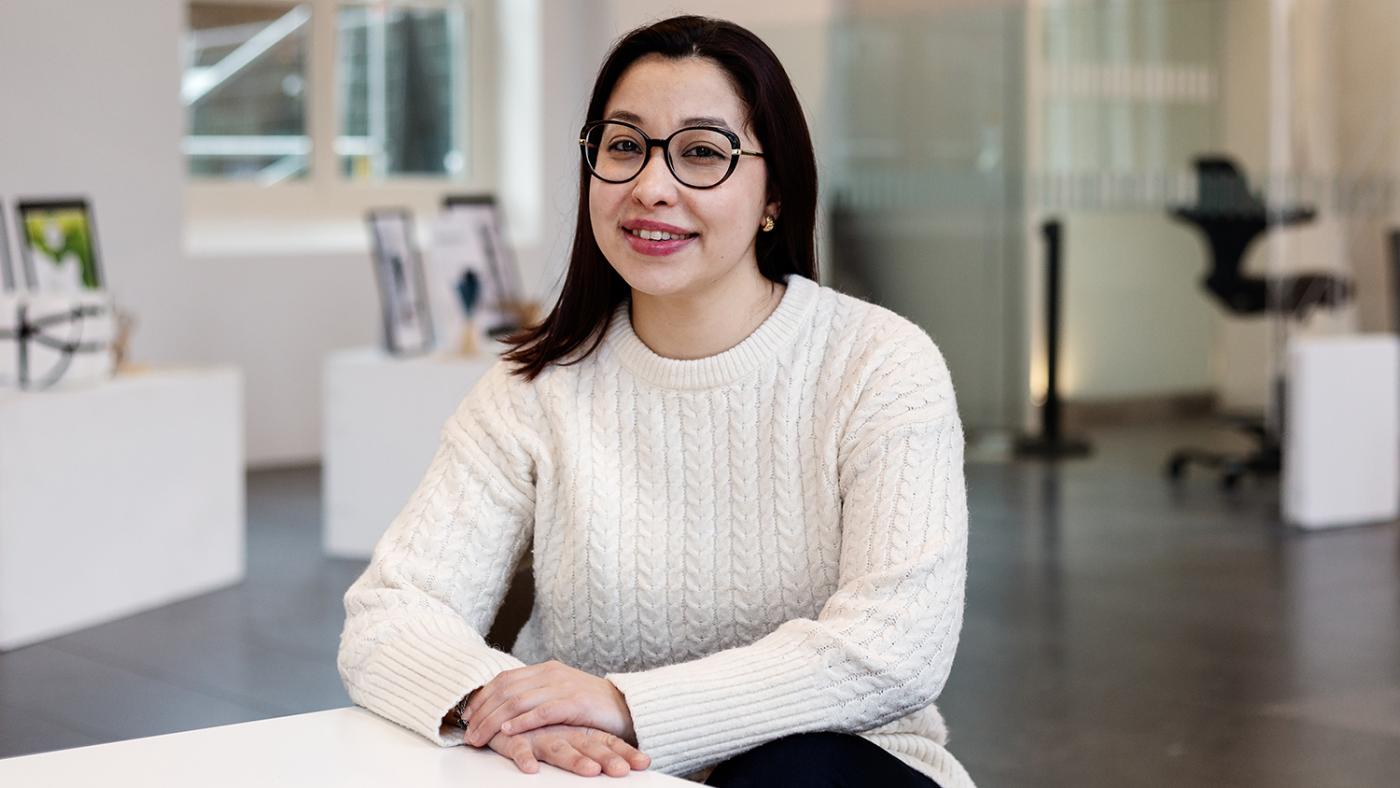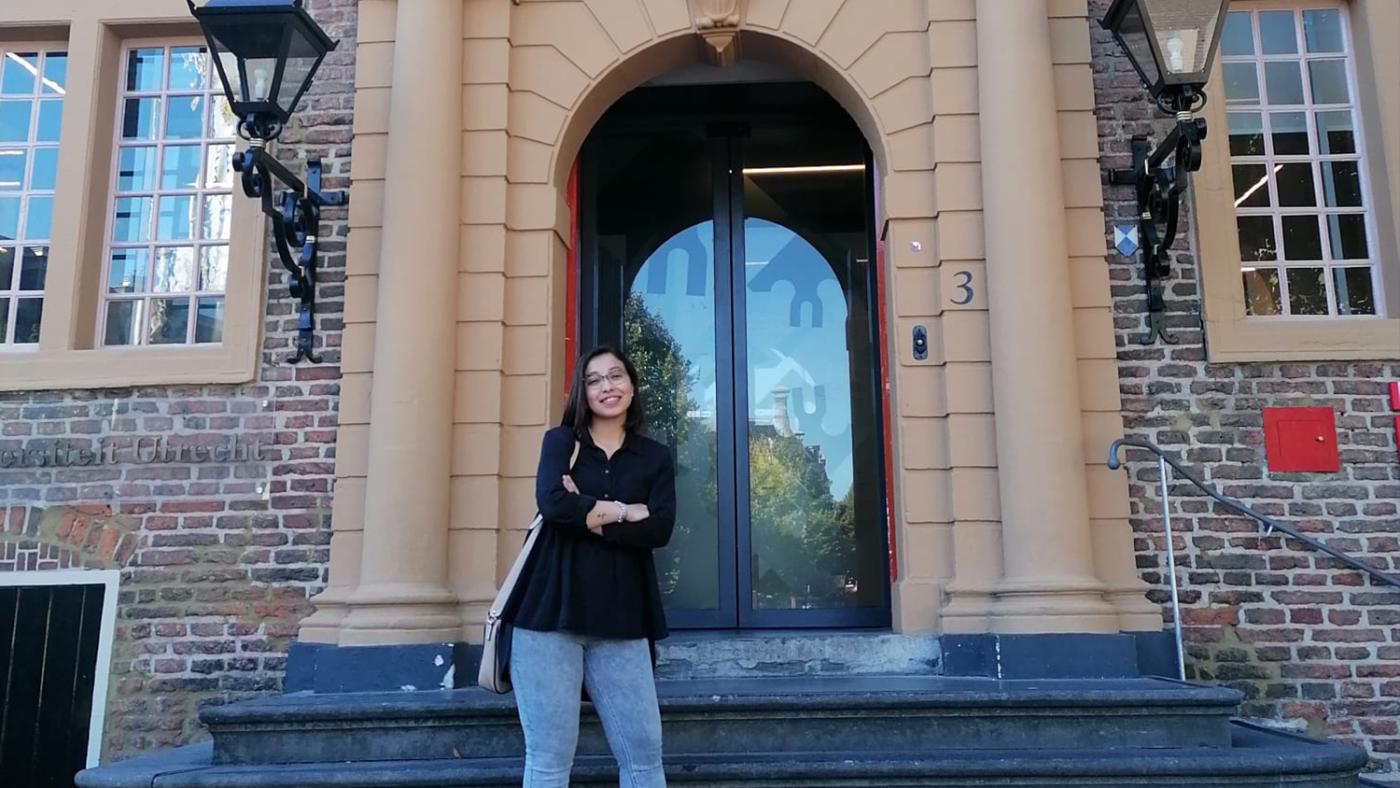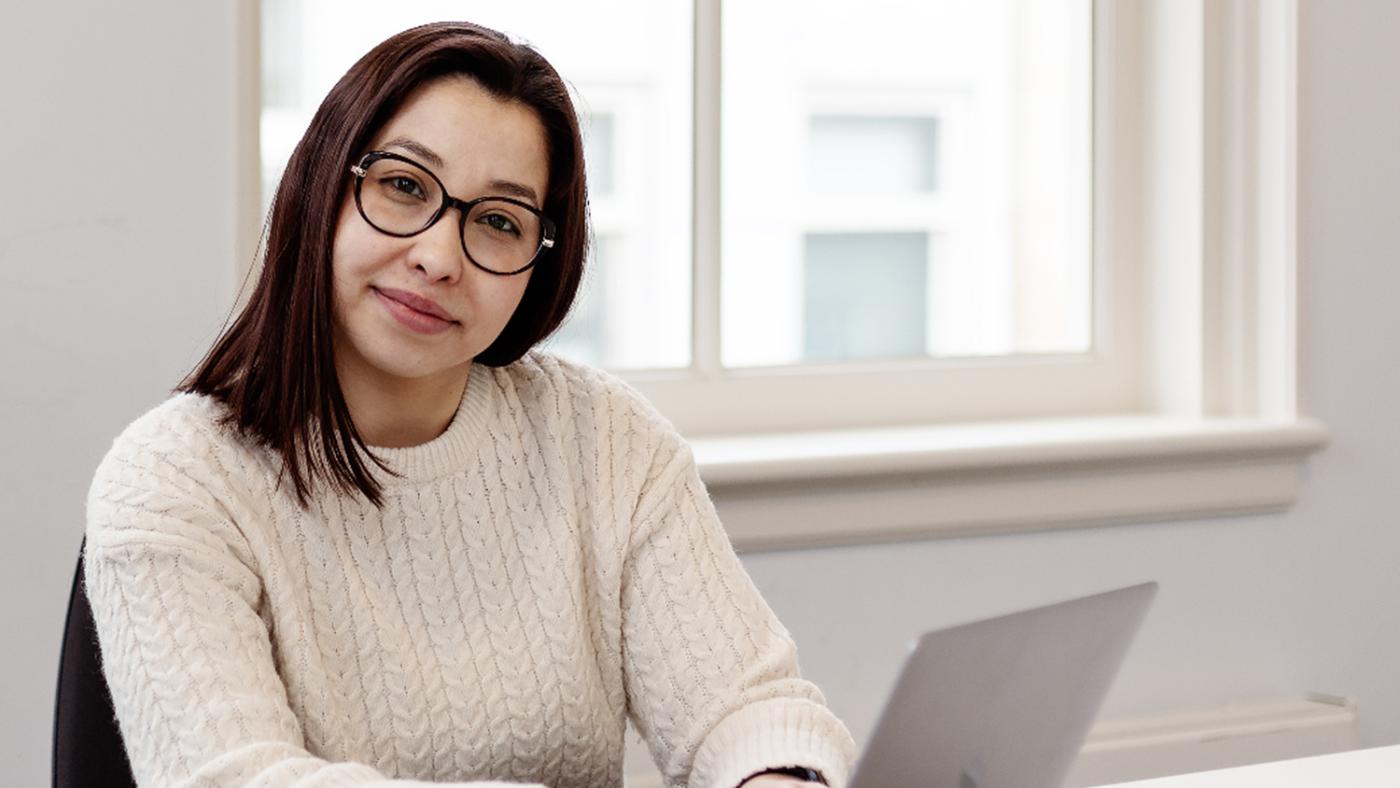Former Incluusion trainee wins Rosanna scholarship
Kübra went from diplomat to refugee to Master’s student at UU

“I went from a prestigious diplomatic passport to refugee status, but identities and titles are not my measure of success. My mother was proud of me when I became a diplomat at 25 and she is still proud of me as a refugee pursuing a Master’s degree in a second language as a mum of two kids,” said Kübra in March, in an event in which four women who have participated in UU’s Incluusion Programme shared their life stories with members of SIB-Utrecht, the student association for international relations.
A few days later, Kübra was announced as one of the winners of the Rosanna grant, a scholarship meant to support promising women in their studies at UU. Winners get between 2,500 and 5,000 euros – the amount depends on each student’s needs. She was honoured to get it. “It is important to see that people value your perseverance,” she tells DUB.
Sense of pride
Losing her job came as a heavy blow for her, considering she’d worked hard to get it and she had a sense of pride about it. The application process, which included several exams, took six months. Kübra has a Bachelor’s in English Language & Culture and was working as an English teacher at an elementary school when she decided to apply for a position in the Ministry of Foreign Affairs. She served two years in Ankara and two years abroad.
Then came 2016, the year of a coup attempt against president Erdoğan and the government. Mass arrests and firings followed. Hundreds of thousands of teachers and public sector workers were dismissed after the government stated that they were loyal to Gülen, the movement to which the coup attempt was attributed. Kübra was one of them. “I was one of hundreds of civil servants whom the state politically targeted and dismissed without providing any evidence.”
For two years, she tried to build a new life, looking for a new job. “But then people started getting arrested for no reason and without any evidence. Some of my former colleagues were arrested and tortured. We moved to a different address than the one where we were officially registered. My husband and I were very afraid. That’s when we realised there was no future for us and our children in Turkey anymore.” At the time, the children were three and four years old. The couple chose to flee to the Netherlands because “it is a safe country where human rights and freedom of speech are protected,” Kübra explains.

“You need people to practice the language with”
Kübra arrived in the Netherlands in 2018. She and her family spent two years in an asylum seeker centre. The pandemic hit in the middle of her procedure, slowing things down. It also slowed down her process of learning Dutch. “I was going to language cafés, but those were cancelled due to Covid. Then the computer room in our shelter was closed too. I asked them: ‘Please provide me with a course, a book, anything’ but it was difficult. You need people to practice the language with.” She believes learning the local language is crucial to integrate to this new society, but she only managed to learn do so after her family was relocated to a house.
At the shelter, Kübra was once again in an international setting – albeit a completely different one. “I realised there was a whole other world that was pretty different from my fancy diplomatic circle,” she recollects. “This was probably the most significant experience of intercultural communication I’ve ever had. I met people from several countries and with all sorts of stories, people coming from war zones. I’ve learned that there is a lot of potential in this community. These are people with a lot of drive and goals, who are eager to build a better life. They deserve support.”

“You are expected to give your opinion here”
Once provided with a house, it was time for Kübra to focus on her career. “I needed a foot in the door because there was a gap in my CV. Although my diplomatic work provided me with transferable skills such as strategic thinking and the ability to communicate effectively, it was hard to transfer my experience to a Dutch context. Even if you’re qualified, if you don’t have any work experience in the Netherlands, it’s pretty hard to find a job.”
Enter the Incluusion Traineeship Programme, about which Kübra heard through a friend. She was one of the ten trainees selected out of 80 candidates. Incluusion trainees are given work placemens according to their interests and skills. Kübra was placed in the Communication & Marketing department of the Faculty of Science for six months, where she edited the website, organised a tour for the directors, and interviewed students with a refugee background, among other tasks.
At first, she assumed it wouldn’t be hard to adapt to this new work environment, since she had worked in an international setting before. But she was wrong. “The Dutch are pretty direct. Turkey is a lot more hierarchical, we call our managers by their fancy titles, whereas here you are on a first-name basis with your manager and you are expected to give your opinion.” Besides, not speaking Dutch at the same level as her colleagues was challenging at times. “People don’t know your talents and educational background. But the more people got to know me and my story, the more they appreciated my efforts and helped me.”
Today, Kübra speaks Dutch at B2 (upper intermediate) level, thanks to an intensive course, the traineeship at UU, and a volunteer position at a neighbourhood centre near her home in the Utrecht region, where she served coffee for the elderly.
“You cannot control everything”
Pursuing a Master’s degree was an old dream which had been put aside due to her hectic diplomatic work. The contact with UU inspired her to finally chase that dream. Her knack for multicultural environments made the choice of programme easy.
It wasn’t easy, however, to adjust to academia again, as she hadn’t been a student since 2010. Now in block three, she is working on a thesis about the challenges faced by other Turkish asylum seekers in the Dutch labour market. She is also doing an internship at the Internal Communication Department of the municipality where she lives. “I wanted to do an internship to gain more experience in the communication department and explore opportunities, particularly the field of Diversity, Inclusion, Language & Integration.” Kübra would like to work for a ministry or municipality in the Netherlands, as that would resemble her previous line of work. A university career as a researcher in Intercultural Communication doesn't sound bad for her, either.
In the future, she envisions becoming a policymaker or consultant after graduation, although it’s hard for her to make long-term plans. “Last time I did, I was full of enthusiasm and desires. And, well, that career ended up in an asylum centre. You cannot control everything.”